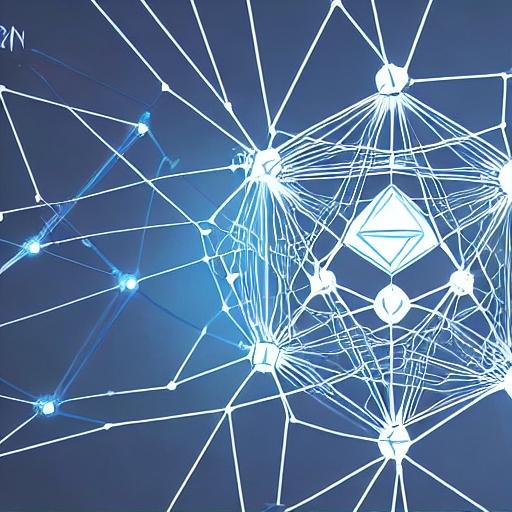If you’re new to the world of cryptocurrencies, you’ve likely come across the term Ethereum. But what exactly is Ethereum and how does it work? In simple terms, Ethereum is a decentralized platform that enables the development of smart contracts and decentralized applications (dApps).
Unlike Bitcoin, which primarily serves as a digital currency, Ethereum’s focus is on providing a platform for developers to build and deploy applications using blockchain technology. The Ethereum blockchain supports its own digital currency called Ether (ETH), but it offers much more than just a payment system.

At its core, Ethereum is a network of computers that are all connected to each other. These computers, referred to as “nodes,” work together to maintain a decentralized ledger known as the Ethereum blockchain. This blockchain records all transactions and the execution of smart contracts, making it transparent and secure.
Smart contracts are self-executing contracts with the terms of the agreement directly written into code. They automatically execute and enforce the terms once certain conditions are met. This eliminates the need for intermediaries and ensures that transactions are completed exactly as intended. Smart contracts are a cornerstone of Ethereum and enable a wide range of applications, from decentralized finance (DeFi) protocols to digital identities and supply chain management systems.
Developers can create dApps on top of the Ethereum platform using different programming languages. These dApps can range from simple online games to complex financial applications. Since Ethereum is an open-source platform, anyone can build on top of it and contribute to its ecosystem.
Ethereum has undergone significant improvements over the years, with the most notable upgrade being the transition from its original proof-of-work (PoW) consensus mechanism to proof-of-stake (PoS). PoS eliminates the need for miners and replaces them with validators who hold and “stake” their Ether in order to participate in block validation and earn rewards. This upgrade enhances scalability, security, and energy efficiency of the network.
Another key concept in Ethereum is Ethereum Improvement Proposals (EIPs). EIPs are proposals for changes to the Ethereum network and can be submitted by anyone. This allows for community-driven decision-making and ensures that the platform evolves to meet the needs of its users.
In summary, Ethereum is a decentralized platform that enables the development of smart contracts and dApps. It serves as a powerful tool for developers seeking to build innovative applications on the blockchain. With its focus on programmability and flexibility, Ethereum has become the second largest cryptocurrency by market capitalization and continues to shape the future of decentralized technologies.
